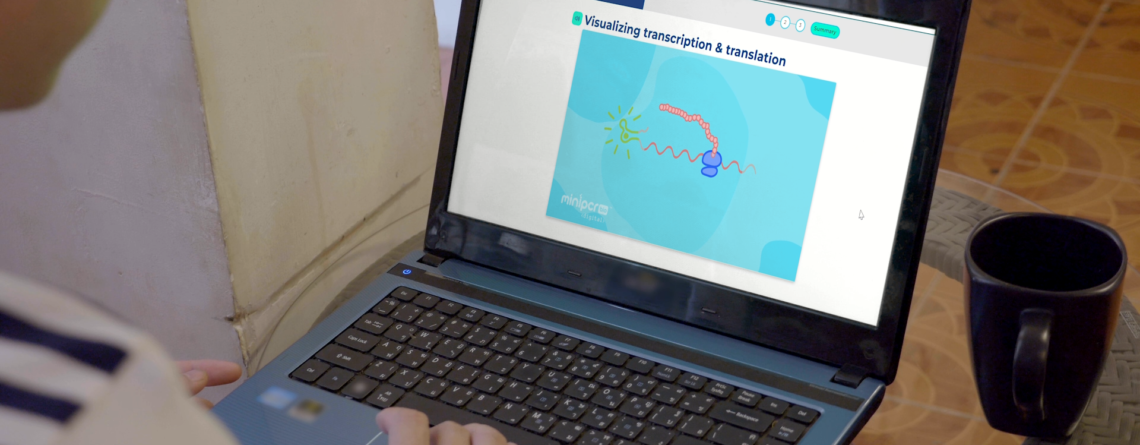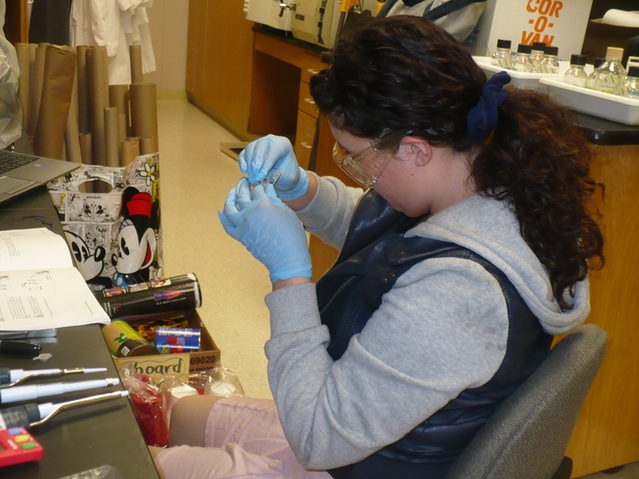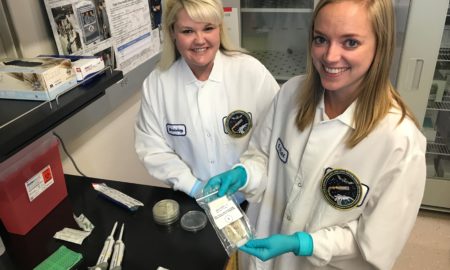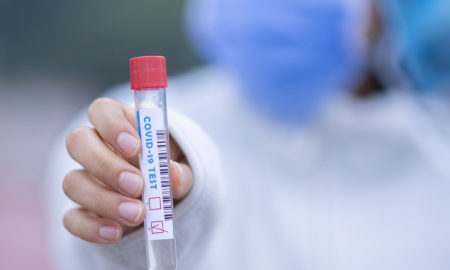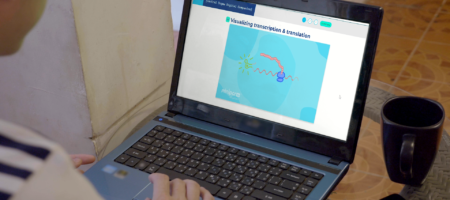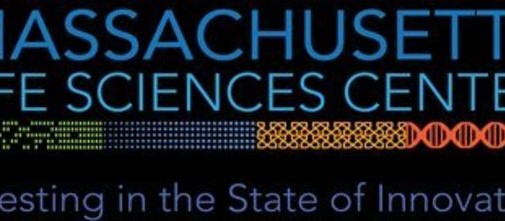Digital Labs to explore genetics in AP Biology
Advanced Placement (AP®*) Biology, developed by the College Board, is a rigorous and wide-ranging curriculum that requires students to develop a deep understanding of core concepts. Because online resources incorporate a wide range of engaging instructional approaches, they can offer a more effective way for students to build understanding. miniPCR Digital Labs provide interactive virtual learning experiences that cover essential AP Biology topics, giving you a new tool to help students engage with complex biological concepts.
Let’s explore two of our most effective digital resources for AP Biology: the PTC Taster Digital Lab and the Central Dogma Digital Lab.
1. PTC Taster Digital Lab: Exploring genetic variation
The PTC Taster Digital Lab is a great fit to cover AP Biology’s genetic variation, inheritance, and biotechnology content. Through this virtual lab, students explore the expression and inheritance of the gene that determines whether a person can taste the bitter compound phenylthiocarbamide (PTC). This Digital Lab helps students connect genetics to physiology and addresses multiple AP Biology topics along the way, including:
-
Topic 5.3: Mendelian Genetics – In this Digital Lab, students explore the inheritance of TAS2R38, a gene that affects PTC tasting. They explore this gene’s inheritance pattern and connect TAS2R38 genotype to PTC taster phenotype.
-
Topic 6.1: DNA and RNA Structure and Topic 6.7: Mutations – The lab introduces the structure and function of DNA, explaining how a single nucleotide polymorphism (SNP) in the TAS2R38 gene affects the function of the TAS2R38 protein and, in turn, the ability to taste PTC.
-
Topic 6.8: Biotechnology – This experiment employs a complete biotechnology workflow–including PCR, restriction digest, and gel electrophoresis–to investigate genetic variation, as exemplified by the PTC gene. Through rich animations and interactive assessments, students explore how each step of the experiment contributes to their ultimate goal of identifying an individual’s TAS2R38 genotype.
Through its coverage of inheritance patterns and molecular techniques, this lab helps students build a strong, integrated understanding of how genetic information translates into observable traits—a key focus of molecular genetics in AP Biology.
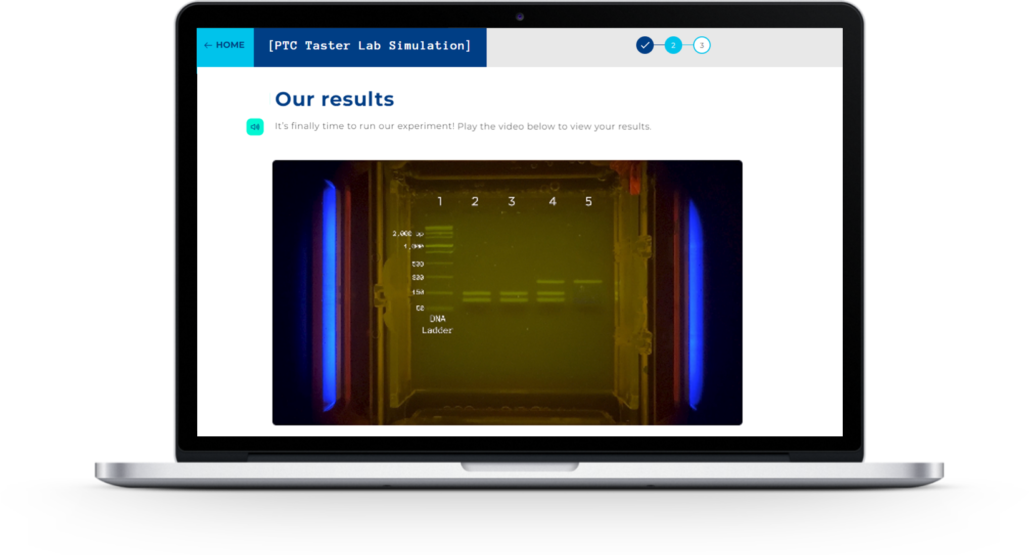
2. Central Dogma Digital Lab: Visualizing gene expression
The Central Dogma Digital Lab brings the processes of molecular biology to life by helping students visualize the critical steps of transcription and translation. This lab offers a highly visual, narrative-driven experience that supports AP Biology students as they study how genetic information is decoded during the process of protein synthesis. Key topics covered in the Central Dogma Lab include:
-
Topic 6.3: Transcription and RNA Processing – In this Digital Lab, students watch videos of a real experiment that uses BioBits, an innovative in vitro protein expression system, to visualize the production of RNA and proteins based on a DNA template. Students will observe fluorescence as DNA is transcribed into RNA in real time, illustrating RNA’s essential role as the messenger of genetic information. The lab reinforces key concepts about the structure and function of DNA and RNA and their roles in protein synthesis.
-
Topic 6.4: Regulation of Gene Expression – Using fluorescent readouts, the lab allows students to observe protein production in real time, helping them understand how genetic information is translated into functional proteins.
-
Topic 6.7: Mutations – By directly observing how mutations in DNA affect protein synthesis, students gain insight into how genetic mutations can lead to different phenotypic outcomes.
This Digital Lab allows students to observe and manipulate the molecular processes of transcription and translation, reinforcing these core concepts and making them more accessible.
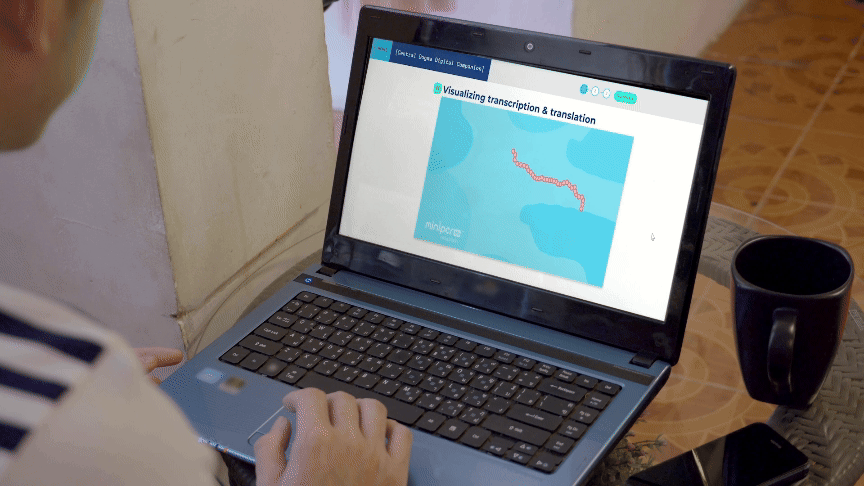
How to use Digital Labs in your AP Biology classroom
The Digital Labs we offer can be integrated into your AP Biology curriculum in two key ways:
-
Lab Companion – This option is intended for use alongside the hands-on PTC Taster Lab or Central Dogma Lab. It provides an interactive lab manual to guide the physical lab work, as well as background information and reference results to enable analysis even if experimental error occurs. The Lab Companion encourages critical thinking and reflection as students collect data and analyze their results from the hands-on experiment. Learn more about miniPCR Digital Lab Companions.
-
Lab Simulation – The Lab Simulation offers a fully virtual lab experience that can be completed asynchronously. This option is ideal as a homework assignment, for remote learning, or simply for students who need a self-paced, flexible option. It allows students to explore the PTC Taster Lab or Central Dogma Lab entirely online, completing lab investigations without the need for physical lab materials. Learn more about miniPCR Digital Lab Simulations.
Both options are designed to offer interactive, engaging learning experiences that align with AP Biology topics, allowing students to explore and experiment in a way that is both informative and fun.
Ready to explore the PTC Taster or Central Dogma Digital Labs? Register your free miniPCR Digital account for full access to our complete library of Digital Labs.
*AP® is a trademark registered by the College Board, which is not affiliated with, and does not endorse, any products or services referenced on this website.
